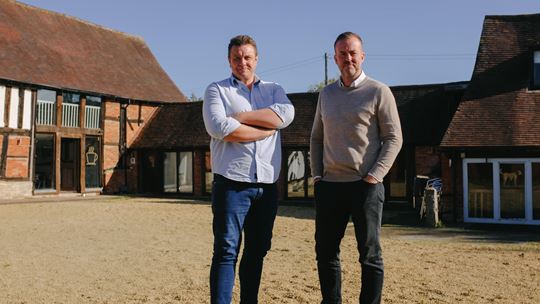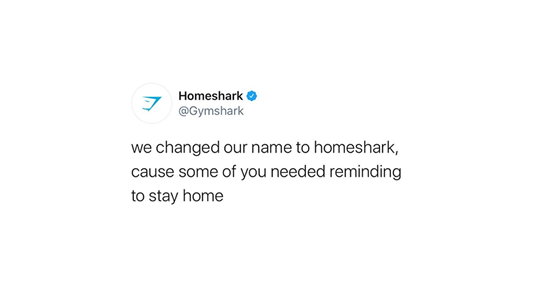How to drive growth for adaptable brands

Al Allaway and Ben Wood have been advising brands how best to navigate their consumer audience for over 18 years. In that time, the landscape has changed significantly but one thing has remained constant, adapt or die.
Businesses that have prospered haven’t necessarily been the ones with the biggest budgets or the most clout, but those that have clearly understood the market conditions, the wants and needs of their customers, and have adapted quickly to accommodate. But a crucial part of that journey is communicating effectively with the right audience at the right time and that’s where Cab Engine, the driving force behind the studios set up by Al and Ben in 2003, really comes into its own.
So, to kick-off guys, what’s the one piece of advice that you would give to a brand owner or business struggling to keep its customers?
Al Allaway: The most important thing is to find out what the customer wants and adapt your brand to suit. All too often, brands pay lip service to their audience’s needs but we are living in a world where ultimately, the customer shapes your brand.
Business models too need to adapt to ever changing needs. Some businesses approach us with the mantra of ‘innovate or die’ accompanied with an apparently continuous innovation programme; but this can lead to a loss of relevance with the end user and that’s a real problem. The fact is, we’ve worked with many companies with CIO’s (Chief Innovation Officers) in place who are on a mission to create the next incarnation of their brand or service. They invest significant budgets, nearly always behind closed doors, only to emerge with something that ultimately doesn’t deliver sales and that can be frustrating.
Ben Wood: I think that some brands innovate for the sake of it. There’s a PR value of course and to innovate by definition, is to change and improve, but if this isn’t done in line with changing customer needs then there’s an inevitable disconnect and worse still, a brand can become irrelevant.
After 18 years of working with brands, we’ve come to a simple conclusion about what a brand really is; it’s a promise. Whether that’s a promise on quality of goods, a service guarantee or an experience, your brand promise must never be broken otherwise you lose brand trust and that can take a lifetime to get back. The challenge in today’s world is that brands must be agile enough to navigate consumer demand to simply stay relevant, and that’s why we insist on working with adaptable brands.
Al Allaway: Innovation comes from iteration. It’s a way of behaving and a mindset, something that we encourage and embrace at Cab Engine.
There are many challenger brands that have the ability to disrupt the market and make a real impact on consumers' lives, but if they can’t adapt then the impact is massively diluted.
The importance of trust in building a brand has been well documented, but can trust really be created via digital channels alone?
Al Allaway: Yes absolutely, because the way that we depict the customer journey of a brand's service, product or experience starts with the customer in search mode. The activity of looking for something online, the associated reviews, recommendations etc. are all part of the search mode. Then there’s what we call the ‘stimulate’ requirement, the user experience, the selection and specification process; and this moves right through to the purchase and subsequent delivery or fulfilment.
All of these points, these moments of truth if you like, are fully within our control and if and when they are done properly, you build brand trust.
Ben Wood: There’s so many different elements that brands need to execute that all contribute to the process of building trust; data-protection, security, accreditations, testimonials, the list goes on. Brands also need to stop building walls. There are too many examples where brands make it difficult for customers to get resolutions to issues they incur as part of their user experience. Examples include cancelling a subscription, changing a booking, obtaining a refund, returning an item; these are often too difficult or take too long and this is one sure way for brands to erode trust with customers.
Think of brand trust as your own health. It takes months, if not years to become fit and healthy but you can lose it in an instant. As digital marketers, and because trust is so fragile, we have to ensure that everything we do as part of the customer journey supports the brand promise and builds another layer of trust. Like fitness, once you have it you must stay consistent, committed and stick to a routine to keep it.
Privacy regulations are tightening. Third-party cookies are crumbling (set to be phased out by Google Chrome entirely by 2022) and brands will need to navigate these concerns in the future. Is it time therefore, to be concerned about changes to the privacy landscape?

Al Allaway: Absolutely we should. The privacy landscape has been driven primarily by cookies, passwords and such like for as long as the web has been around. But businesses today are effectively being penalised for trying to understand and navigate the privacy rules of engagement. But the reality is that the vast majority of web users, over 70% in fact ‘accept all’ when prompted and so are legally giving away their data, just for convenience.
What we should be concerned about is the issue of big data. This is when masses of data is harvested, held in a data lake and, for those willing to pay, made available to market directly to profiled prospects with the option to track their digital footprint. This has nothing to do with privacy but everything to do with finance and that’s a frustration.
Ben Wood: I agree, the corporate world and governments have more control now than ever and somethings got to give.
Providing contextualised experience i.e. experiences that communicate effectively to a niche audience, is among the top ways to engage prospects and leads, moving them further down the conversion funnel.
These are usually highly personalised, offering tailored content and messaging to a given user, and cab engine can and do deliver this as an automated service. Is creating contextualised experiences really worth the investment?
Al Allaway: There are many different ways in which you might personalise or contextualise your comms. It could be based on a tiny bit of underline preference, or based completely on your historic purchasing habits, or even based around what is being sold as an experience. But to be honest, enough testing has been done to prove that the more you flex a product or proposition in the digital space, the more likely you are to make a purchase. This is because you are fine tuning the offer to meet the needs and desires of your customers.
There are plenty of other aspects to be mindful of too. For example, the time of day; in the evening you can assume that someone has more browsing time but early morning, for most at least, you can assume zero browsing time and decision processes are obviously shorter. It’s easy to see how something as simple as time of day provides a contextualised experience.
Ben Wood: It’s worth noting that brands can and should do more on filtering out the customers that don’t want these types of experiences. For some, especially within the grey market as an example, they are freaked out by most forms of data tracking. They simply don’t see those highly personalised comms or product preferences based on previous usage as helpful, just invasive.
It’s a generation thing. We are in a transition world right now with people who still remember life before the internet, before mobile phones, before email. And yet, the consumers of tomorrow expect a highly personalised world with data technology making their lives easier and quicker. It’s our job to cater for both ends of the spectrum.
In the future, when everything will be highly contextualised, relevant and timely, the brands and businesses that win most will be those that offer authenticity. Remember that not all personalisation looks or feels authentic; this will be the next evolution.
According to McKinsey & Co. since the COVID-19 pandemic took hold:
- 76% of consumers have tried new brands or new ways to shop
- 40% of consumers cited that they’re less likely to spend on discretionary categories
- 64% of consumers aren’t ready to resume “normal” out-of-home activities
How can brands ensure their digital marketing is ready to respond to an uncertain future?
Ben Wood: Agility. Every time, agility is king… which means re-imagining the concept of brand guidelines. The rigidity of this template type approach to branding has become too restrictive. It’s no longer about tone of voice but tone of action. Brands have to be able to bend and flex around customer needs and do it quickly as well. It’s an ever-changing world we live in and so adapting to change now is a must.
A beautiful example of this is Gymshark. During lockdown they physically changed their name to Homeshark. Simple, inspiring and reminded people to stay at home and save lives but still have product relevance. That’s agility. But perhaps what’s most impressive is how courageous it was to be prepared to rename your entire business to become more relevant in a real time situation.

And that’s the final piece of the jigsaw for brands, they must act with courage and conviction and be seen to take risks in the battle to win hearts of minds.
Al Allaway: This is the one area that robots or the latest AI can’t replicate; creativity. This will be the differentiator of the future.
Guys, thanks for your time and inspiring words. Any final thoughts before I let you go?
Al Allaway: The final point I’d like to make is a message to all brands out there looking to use an agency. If you are to use a channel specialist, to execute in one particular channel, they will inevitably try to squeeze every penny out of you they can, to access that channel to the max. An adaptable brand needs to be working with somebody who’s prepared to kill a channel if another one becomes stronger. In other words, find an agency that’s channel agnostic. Right now, that is crucial.
Ben Wood: Yep. Truth is, it’s actually harder for us (as an agency) to implement this but so much fairer for the client. We would even sacrifice our own profitability, to ensure we are relevant to our clients' customers… but maybe not put that in the blog.
Where would you like to go?
We’d love to understand more about your business needs and challenges. Talk to a team of exciting minds and create a collaborative partnership focused on driving growth for your business.